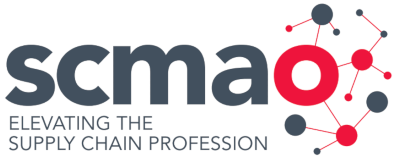Supply Chain: When crisis knocks, opportunities grow

In the war for talent, is the exodus of women from other professions an opportunity for supply chain?
In my previous columns, I have discussed the crucial role that supply chain leaders play in elevating the profession from the tactical to strategic level. The profession is at an important juncture. How we harness the momentum of the past two years will determine the future role supply chain plays in the boardroom.
A recent survey from McKinsey & Company and LeanIn.org caught my eye. Amidst the supply chain talent shortage and conversations about "the great resignation," this survey pointed out that women leaders are switching jobs at the highest rate on record – at a higher rate than men – as they demand more from their employers. A good work culture, flexibility, as well as more diversity and inclusion are among the areas these women wish to seek. The study also says that men significantly outnumber women at the managerial level, and that women can never catch up.
Yet looking at our community of supply chain professionals – representative of one of the largest supply chain professional groups in Canada – the diversity is inspiring. I am proud that in the supply chain profession itself, I have had the privilege of meeting with and learning from women who are in senior management roles and have made monumental contributions. Their passion for supply chain is evident. Yet many, if not most, of these leaders did not start their careers as supply chain professionals.
This begs the question: how can we inspire more women to consider professional opportunities within supply chain? Is the exodus of women from their current roles an opportunity for the supply chain profession?
In pursuit of answers, I reached out to a few supply chain leaders who are active in the SCMAO community, to gain their perspectives. Here is what they had to say:
There are many more such examples within our community of supply chain professionals. The prospect of gaining transferable skills, business knowledge, and analytical and decision-making abilities are important factors in encouraging organizational talent to move into supply chain. Some key steps include, but are not limited to:
- Learn more about internal branding and marketing, then leverage these tools to position your supply chain team as a value proposition within your organization. Employees who are contemplating quitting other departments may then consider a supply chain career.
- Training in DEI, building organizational culture, and mentorship are especially important for current managers as organizations move to grow their supply chain workforce. Foster an environment that attracts talent from within the organization.
- Hiring employees from other professions, yet from within the organization, is a new way to address talent shortages and grow the supply chain talent pool. Albeit this comes with a commitment to equip employees with the right training and education.
As organizations cope with finding the right fit and supply chain talent, it is time to think "inside" the box, champion women within organizations who are looking for opportunities and encourage them to explore a rewarding career in supply chain. Incidentally, as per a recent ASCM career report published by Argentus, women in supply chain, aged 40-49 are more likely to be in leadership roles - another reason for more women from other professions to switch careers to supply chain, as never before has this career been so exciting!
The current spotlight on supply chain, the growing resilience and agility within the profession, along with the innovation and fast pace are ideal conditions for women with transferable skills to optimize supply chain operations through their focus on collaboration, problem-solving, empathy and culture. The only missing link for their success is the investment to train them through foundational and technical supply chain education. As the supply chain environment and future of the workforce goes through paradigm shifts, this is an area of investment that will continue to yield long-term results.

